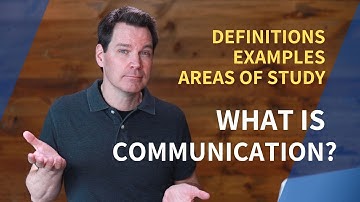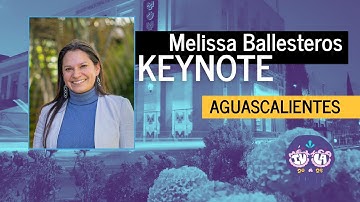Communication Studies
What is Communication Studies?
Communication Studies
Communication Studies is an academic field that deals with processes of human communication and behavior, patterns of communication in interpersonal relationships, social groups, and cultures. It is a diverse discipline that encompasses a range of topics, from face-to-face conversation to mass media outlets such as television broadcasting and the internet. Communication studies also examines how messages are interpreted through the political, cultural, economic, semiotic, hermeneutic, and social dimensions of their contexts.
As an interdisciplinary field, it draws from social sciences like sociology, psychology, and political science, as well as from the humanities, such as rhetoric, philosophy, and cultural studies. The core of the discipline is understanding how meaning is created, shared, and has effects.
Key Areas of Study
Communication Studies is a broad field with many specialized sub-fields. Key areas include:
- Interpersonal Communication: Focuses on communication between people in relationships, including friendships, romantic partnerships, and family. It explores topics like conflict resolution, relational development, and nonverbal cues.
- Organizational Communication: Examines communication within and among organizations. This includes corporate culture, leadership, teamwork, and how information flows within a company.
- Mass Communication & Media Studies: Analyzes the role and effects of mass media (e.g., television, film, newspapers, internet) on society. It covers media industries, media effects, journalism, and the representation of groups in media.
- Rhetoric and Public Address: The historical and modern study of persuasion. It involves analyzing speeches, political discourse, and arguments to understand how they influence audiences.
- Intercultural Communication: Studies communication across different cultural backgrounds. It is crucial for understanding globalization, international relations, and diversity.
- Health Communication: Focuses on the role of communication in healthcare. This includes doctor-patient interaction, public health campaigns, and the dissemination of health information.
- Political Communication: Investigates the relationship between communication and politics, including campaign strategies, political advertising, media's role in elections, and public discourse on policy.
- New Media & Technology: Explores the impact of digital technologies, such as social media, mobile devices, and the internet, on communication practices and social structures.
Foundational Theories & Concepts
The field is built upon a rich history of theories that explain how communication works.
| Theory / Concept | Core Idea | Primary Area |
|---|---|---|
| Shannon-Weaver Model | A linear model depicting communication as a process of sending a message through a channel from a source to a receiver, accounting for "noise." | General Communication |
| Agenda-Setting Theory | The media doesn't tell people what to think, but what to think about. Media coverage influences the perceived importance of topics. | Mass Communication |
| Symbolic Interactionism | People act toward things based on the meaning those things have for them, and these meanings are derived from social interaction and modified through interpretation. | Interpersonal/Social |
| Cultivation Theory | Long-term exposure to media, especially television, shapes viewers' perceptions of social reality to align with what is presented. | Mass Communication |
| Uncertainty Reduction Theory | In initial interactions, individuals are motivated to reduce uncertainty about each other through communication to predict and explain behavior. | Interpersonal |
| Rhetorical Appeals | Aristotle's modes of persuasion: Ethos (credibility), Pathos (emotion), and Logos (logic). | Rhetoric & Public Address |
Career Paths for Communication Graduates
A degree in Communication Studies equips individuals with highly sought-after "soft skills" like critical thinking, problem-solving, and effective oral and written communication. This versatility opens doors to a wide array of professions.
- Business & Corporate:
- Public Relations Specialist
- Marketing Manager
- Human Resources Manager
- Corporate Trainer
- Sales Representative
- Media & Entertainment:
- Journalist / Reporter
- Social Media Manager
- Content Strategist
- Broadcast Producer
- Film/TV Production Assistant
- Government & Non-Profit:
- Political Campaign Manager
- Speechwriter
- Lobbyist
- Non-Profit Program Director
- Community Outreach Coordinator
- Education & Law:
- Admissions Counselor
- Debate Coach
- Paralegal
- Mediator
Latest Questions for Communication Studies (143)
Videos for Communication Studies

コミュニケーション学位を取得すると何ができるでしょうか?
Communication Coach Alexander Lyon

What is Communication Studies?
UNCW COM/Media

What Can You Do With Your Communications Degree? | College and Careers | The Princeton Review
The Princeton Review

Is a Communications Degree ACTUALLY Worth It? (I Make Six Figures!)
Dave Chung

What is Communication?
Communication Coach Alexander Lyon

Visual Literacy and Research-Creation: Toward a Configurative Paradigm of Knowledge
IVLA

Think Fast, Talk Smart: Communication Techniques
Stanford Graduate School of Business

5 things I wish I knew before getting a COMMUNICATIONS DEGREE
Quarter Life Crisis

Communication Studies, About the Department
College of Liberal Arts, University of Minnesota

The Department of Communication Studies
UNC Charlotte Admissions

5 Things I wish I knew before I studied BA Communication Studies | South African YouTuber 🇿🇦
Mamodupi Lekekela

Animal Communication Studies Reveal Mindblowing Results
Anton Petrov

Why Communication Studies?
Kent State School of Communication Studies

EVERYTHING YOU NEED TO KNOW about a Communications Degree: misconceptions, courses, internships etc
cheyenne cassidy

Communication Studies, B.A. at Biola University
Biola University

Why Communication Studies
HastingsCollege

Department of Communication Studies
University of Johannesburg YouTube Channel

Communication Studies
Towson University
Sub Categories
How to Get $FAQ Rewards
We are seeking contributions from many people to reach 100 million questions. We will provide $FAQ token rewards to all contributors
- 1. Ask questions to earn $FAQ rewards
- 2. Provide API_KEY to earn $FAQ rewards
- 3. Random drops of $FAQ rewards when browsing questions
 Will I feel discouraged if my posts receive no likes?
Will I feel discouraged if my posts receive no likes?